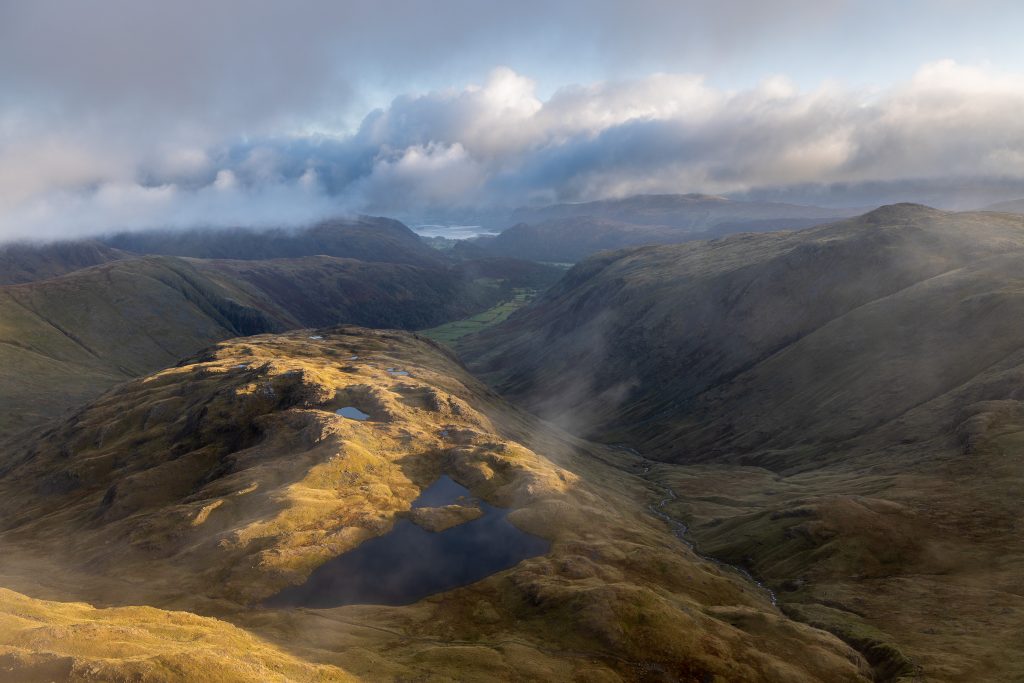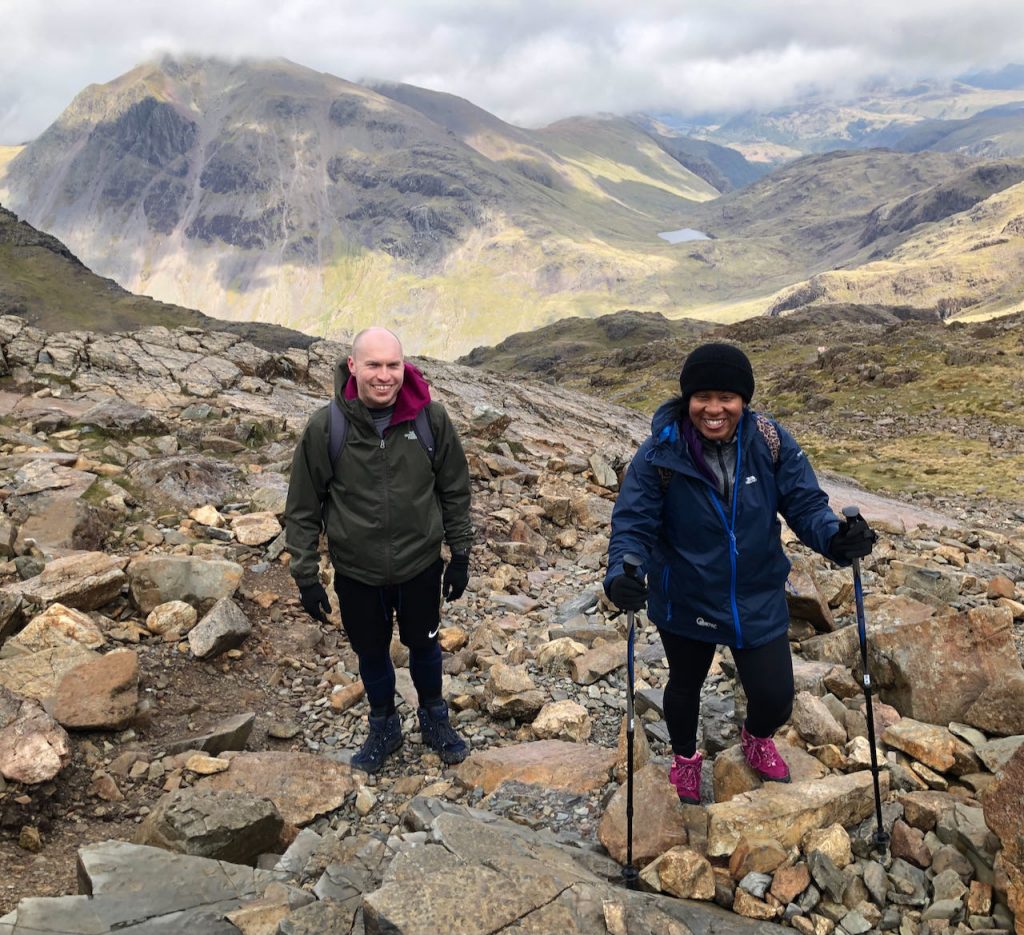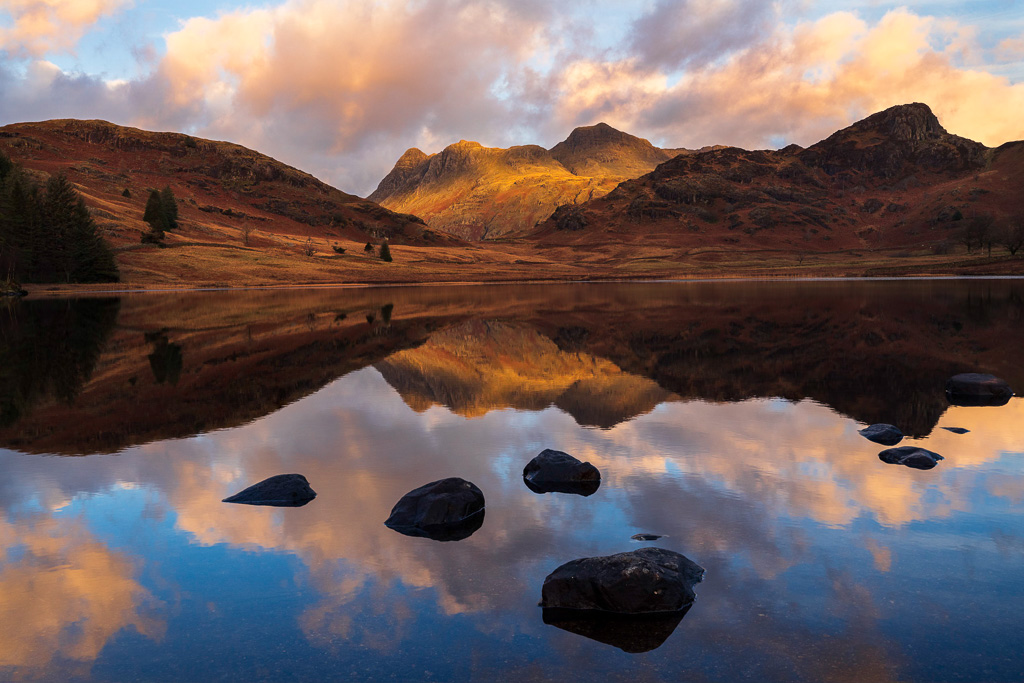


Table of contents
Introduction
The hill and mountain skills course is aimed at keen walkers/hikers who want to move beyond the low-lying valleys and fields and access the higher hill and mountain areas of the UK (notably Snowdonia, the Lake District and the highlands of Scotland) independently but safely.
Through a mountain skills course you will:-
- Become more confident and independent in the hills and mountains.
- Know how to plan your own mountain walks without relying on and following others.
- Understand how to navigate with a map and compass, supported by mobile phone apps and GPS units.
- Develop navigational strategies and tactics to apply in different situations.
- Understand what contour lines are, how to visualise them in the real world and understand how they affect your walk/hike.
- Appreciate how to deal with steep, rocky or broken ground (off paths) and what is, and is not, a safe route choice.
- Know how to deal with poor visibility and have back-up plans.
- Understand more about to wear and carry depending on your route choice and weather conditions.
- Know how to deal with emergency situations.
Booking and Prices
If you’d like to know more about our hill and mountain skills courses in the Lake District, then see the main page for more details and prices or see what our clients say about us.
When you are ready, then get in touch to make an enquiry or a booking.

Hill and Mountain Skills Course Details
The course is highly practical and will take place on the hills and mountains – not in the classroom.
It takes the form of guided mountain walks (usually over two days as this works well for a weekend), interspersed with frequent short learning sessions. After each session there is the opportunity to question or discuss, and then put into practice what you have just learned.
The course is also available as a one-day course or for longer than just two days.
- One-Day Course – Shorter (and therefore cheaper) but not so much opportunity for consolidated practice and therefore building confidence in new skills.
- 3-5 Day Courses – Longer (and therefore more expensive) but offering more opportunity to practice and consolidate skills while still safely under supervision.
- Two-Day Course – A realistic compromise, especially as it works well for a weekend.
This hill and mountain skills course is broad in nature as we cover a lot of content. Aspects of navigation are covered, but it is not a dedicated, detailed navigation course. If you really want to work on and improve your navigational skills, then check out our specific navigation courses.
Hill and Mountain Skills Course Structure
This is the typical structure for a two-day hill and mountain skills course.
Day 1
- 9.00am – Meet at suitable village or parking place (depending on course location).
- 9.00am to 4.00pm – Guided mountain walk of about 4-5 hours walking time, typically covering about 12km and perhaps 800m of ascent.
- 4.00pm – Review of the day.
- 4.30pm – Briefing on route-planning exercise.
- 5.00pm – Finish.
Day 2
- 9.00am – Meet at agreed location and discuss planned routes.
- 9.30am to 4.30pm – Mountain walk of a smilier distance and duration to Day 1, where you have the chance to lead (while still being safely under supervision). This is the ideal opportunity to make mistakes and learn from them.
- 4.30pm – Review of the course.
- 5.00pm – Finish.

Clothing and Equipment
You will need to provide your own clothing and equipment. A kit list will be sent to you when you book, and there will be plenty of opportunity to discuss this in advance of the course.
The only items we provide on our hill and mountain skills course are maps and compasses.
The main items that you will need are:-
- Suitable footwear – a typical light summer hiking boot of ankle length is usually appropriate.
- Waterproof jacket and trousers.
- Head-torch.
- Day rucksack of approximately 25-30 litres capacity.
Food and accommodation
You will need to make your own arrangements for accommodation in the local area.
Food is not provided and you need to bring your own food and drink that is suitable for carrying and eating on the hill during our breaks.
Hill and Mountain Skills Course – Frequently Asked Questions
If you want to access the hills and mountain areas of the UK independently and safely, and are not 100% sure of what this involves, then ‘Yes’, you would definitely benefit from this course.
Hundreds of thousands of people visit our hills and mountains each year, have a great time, and return home safely. However, the mountains are an inherently risky environment. You are much more likely to avoid an accident by being able to recognise and deal with hazards, rather than blindly hoping to ‘get away with it.’
The more people visit our hills and mountains, then proportionately the more mountain rescue incidents there will be. Many are the result of ‘the simple slip’. But many are also due to a lack of understanding leading to things such as inadequate planning and preparation; poor route choices; navigational errors; not understanding what certain popular apps mean (and do not mean); and not being suitably dressed or equipped for the day or route. A hill and mountain skills course will help you avoid these scenarios.

